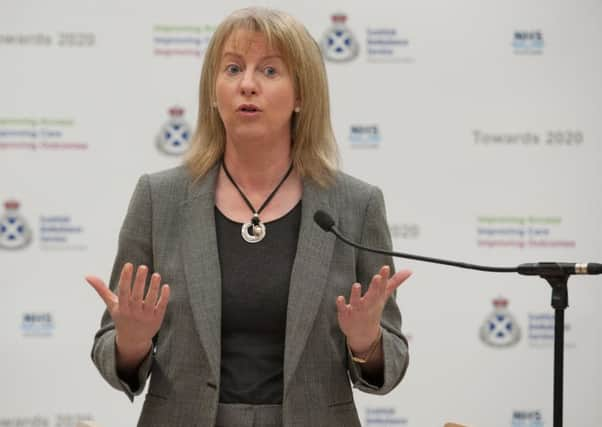Playing politics won't help GPs in most deprived areas


That’s why I’m looking forward to the health secretary’s appearance before committee this week at the Scottish Parliament. Rather than seeing it as an opportunity to grab headlines, I hope other opposition parties will join the Greens in giving Shona Robison a constructive grilling to get to the bottom of issues in the health service.
For example, I’ll be highlighting how the Royal College of General Practitioners calls for an increase in funding for general practice to reduce the burden of health inequalities. This is in line with the call of GPs at the Deep End, they are doctors who work in general practices serving the most 100 deprived populations in Scotland.
Advertisement
Hide AdAdvertisement
Hide AdScottish Green MSPs are committed to working to make primary care fair. Ninety per cent of patient contact is with GPs and other primary care professionals working in communities, but these services are not equally available to all who need them. Last year, researchers from Glasgow and Dundee universities found that GPs working in deprived areas have a higher workload and 20 per cent more consultations with patients who have more than one health condition. Research produced by GPs at the Deep End also shows that GPs working in deprived areas typically have far more consultations with patients who are struggling with their mental health, and with financial difficulties. It’s crucial that GPs working in these challenging circumstances are well supported.
The Scottish Resource Allocation Formula does take deprivation into account, but the final shares allocated to NHS boards and GPs don’t fully address the need for greater resources in the most deprived areas. Moreover, while the formula considers the age of patients in each area, because elderly patients often require a greater degree of support, it doesn’t fully account for the shocking difference in healthy life expectancy between the most and least deprived areas.
This issue affects GP recruitment too. Research produced by GPs at the Deep End in April this year found that there are proportionally more GP training places available in affluent areas compared with practices in more deprived areas. The Scottish Government’s new GP Training Bursary will only go so far in attracting trainees to posts which have been hard to fill, because of the 100 posts available, only 37 come with an additional payment incentive. In the long term though, we need to make sure general practice is funded sustainably, because recruitment shouldn’t have to rely on short-term incentives like these.
We badly need to do more to open up access to the medical profession. A study this year, Fair Access to Medicine, showed that 42 per cent of medical places in the UK were awarded to applicants from the most affluent 20 per cent of postcodes. Scotland is performing particularly poorly on access to medicine: 86 per cent of Scottish medical students have parents in the highest ranked professions and only 4.3 per cent were from the most deprived 20 per cent of postcodes, compared with 8.6 per cent in England.
The difference in payments per head to GP practices in the most and least deprived areas does not do enough to tackle inequalities. The difference of £3.97 per person should be considerably more. A report by ISD Scotland reveals that the overall payment to general practice service providers of £753.9 million is “virtually the same amount” as last year.
Greater and more targeted spending can play a key part in an overall preventative spending strategy. By preventing ill-health, we can ease the pressure on our NHS. Investing in measures to tackle the causes of physical inactivity and soaring diabetes levels is urgently needed. With a truly collaborative approach, Scotland can shake off its poor health record.
Alison Johnstone is Scottish Green MSP for the Lothian region